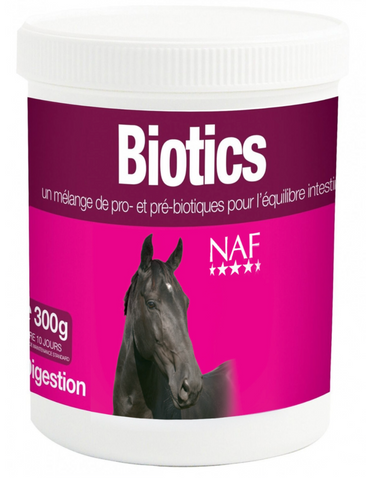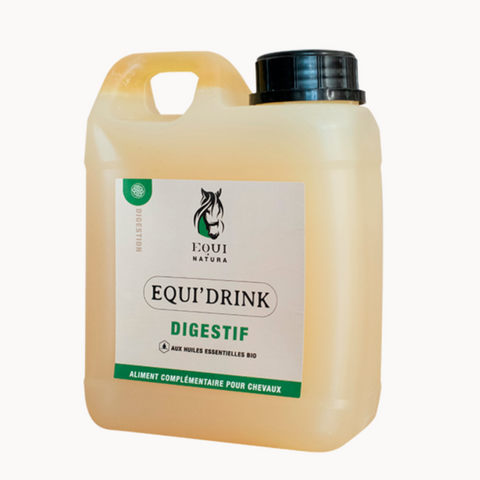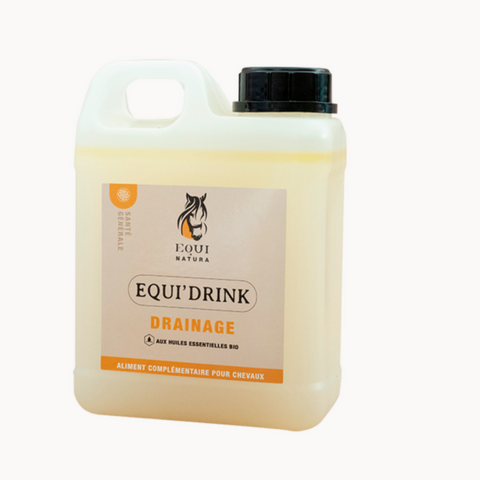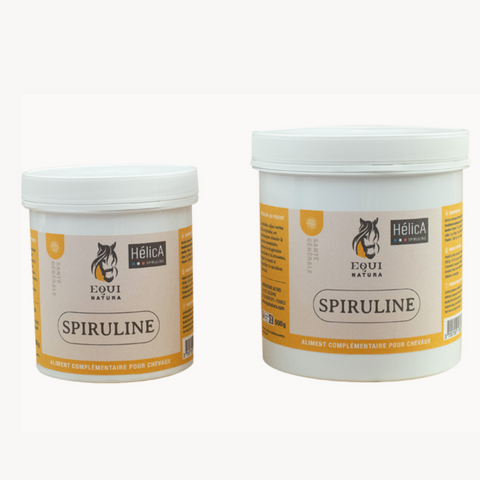Digestion: colic
The term “colic” applies to a whole range of abdominal pain. What are the most common signs of colic?
The horse generally sweats profusely, it scratches the ground with its forelegs, it looks at its stomach, it can hit its abdomen with its hindquarters, it does not eat, its heart rate is often increased, the horse tries to ride etc.
But you have to be careful: “cold” draft horses and shivering show few symptoms; when they show signs of colic they are already very sick. Young horses, sensitive horses and thoroughbreds often show violent signs, not always related to the severity of colic. However, the signs should always be taken seriously: a healthy horse does not have colic at all.
What you can do while waiting for the vet:
*if the horse wants to roll, let him do so, but in a place where he is not at risk of injury, that is to say: not in his box, but rather in a paddock, a riding school, a meadow;
*if the horse does not try to roll over, you can make him walk, but without forcing him and not for too long, take small breaks;
*especially don't cover it, a cover can do more harm than good;
*try to avoid any additional stress such as the presence of other horses too close, noise, etc.
* think of yourself and stay away, a horse that is in pain does not think of its dear owner and...its legs are long.
The most common colic are:
Spasmodic colic:
The horse exhibits signs of suffering due to spasmodic contractions of the small or large intestine. They can, for example, appear in a horse which quickly drinks too much cold water, which has just undergone a sudden change of food, for example excessive consumption of young grass, rapid cooling of a horse which has sweated, too much food during competition periods, weather changes, etc.
An analgesic and an anti-spasmodic injected by your veterinarian are often enough to get everything back to normal. Put the horse on a diet for a few hours, or even a day according to the practitioner's advice, then give food rich in fiber: hay, a little moistened bran.
Gas colic :
The horse swells and suffers a lot. This bloating is linked to excess gas production (digestive fermentation), this is the case when the horse has eaten too much young grass, but it can also be due to a reduction in intestinal peristalsis: horse eating sand or a horse that doesn't get enough exercise.
Keep him walking while waiting for the vet. Don't let him roll around. The veterinarian, depending on the case, will administer digestive antispasmodics, painkillers or prescribe a laxative.
After recovery, same diet and food instructions as for intestinal spasms.
Stasis colic :
Often caused by a blockage of dry food, sand or clumps of intestinal worms (be careful with young horses that have been poorly dewormed during infancy).
Also be careful with hemp and linen bedding: a horse that is bored and does not have enough hay will not hesitate to eat it and risk obstruction.
The droppings are very dry, the appetite decreases, the horse becomes limp and becomes more and more rigid. The veterinarian will then make his diagnosis by rectal palpation.
We can try to avoid this type of colic by checking the horse's teeth, preventing it from eating too much straw, not changing its food suddenly, and providing it with enough exercise. Beware of forced rest following an injury; consider reducing the ration, but not the hay.
Give flax seeds regularly (see the “The whole family” file - the horse in winter).
Some horses are even sensitive to variations in atmospheric pressure, so it is necessary to reduce the quantity of pellets provided and increase the hay ration.
When a horse suddenly suffers from violent abdominal pain, his heart rate is very high, he sweats a lot and sometimes backs up to sit, it may be acute gastric indigestion. Veterinarian intervention then becomes extremely urgent.
If in doubt, do not hesitate to notify your veterinarian quickly, you should never take the risk of calling them too late.
Diarrhea or softening of droppings; there are multiple causes in adult horses: change of food, poor quality hay, stress, salmonellosis, intestinal parasitism, poisoning, reactions to certain medications, etc.
If the cause is uncertain, use Biotics or Spirulina initially.
Summary: how to avoid colic?
*give good quality hay on a self-service basis;
*give food in small quantities, several times a day;
*make sure the horse can eat in peace;
*a change of food is always done very gradually, take your time;
*always avoid the horse drinking too much cold water, especially after exercise;
*make sure his water is of good quality and clean;
*be careful with spring grass, limit outings to the meadow when the horse is not used to being in the meadow during the winter;
*watch if your horse ingests sand;
*have your teeth checked regularly;
*avoid stress as much as possible; for this, hay is a good stress reliever; (see also the file “nervous horses”);
* check with your veterinarian whether the horse has been correctly dewormed; if in doubt, have a coproscopy performed;
*the horse is made to move, not to be confined, so take him out as much as possible! Muscle activity is very important for good transit.




